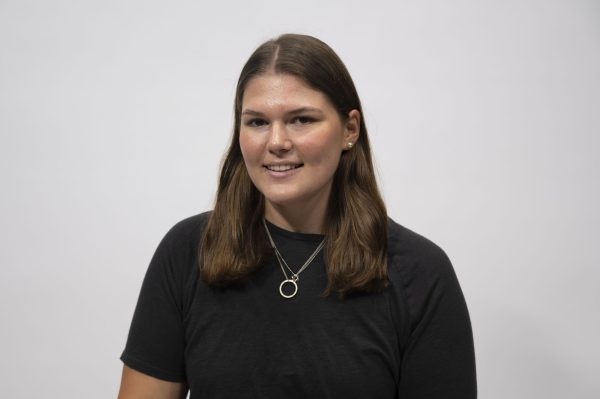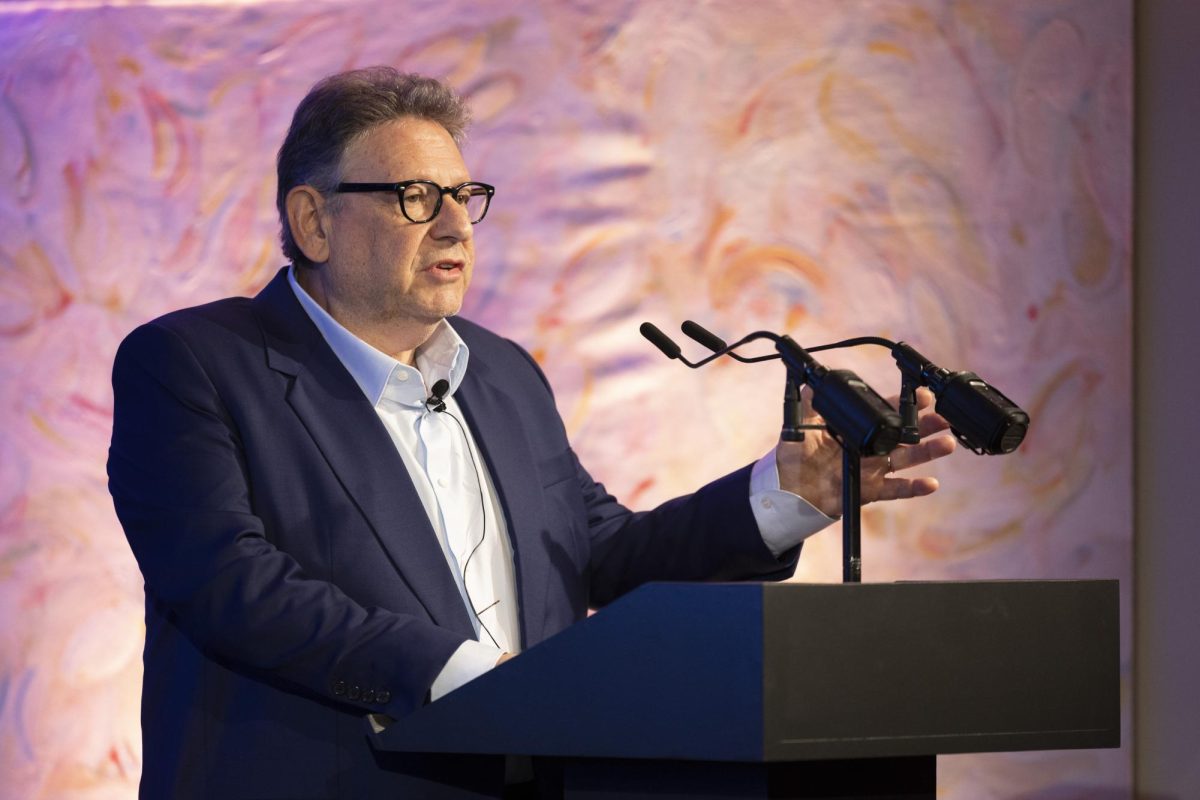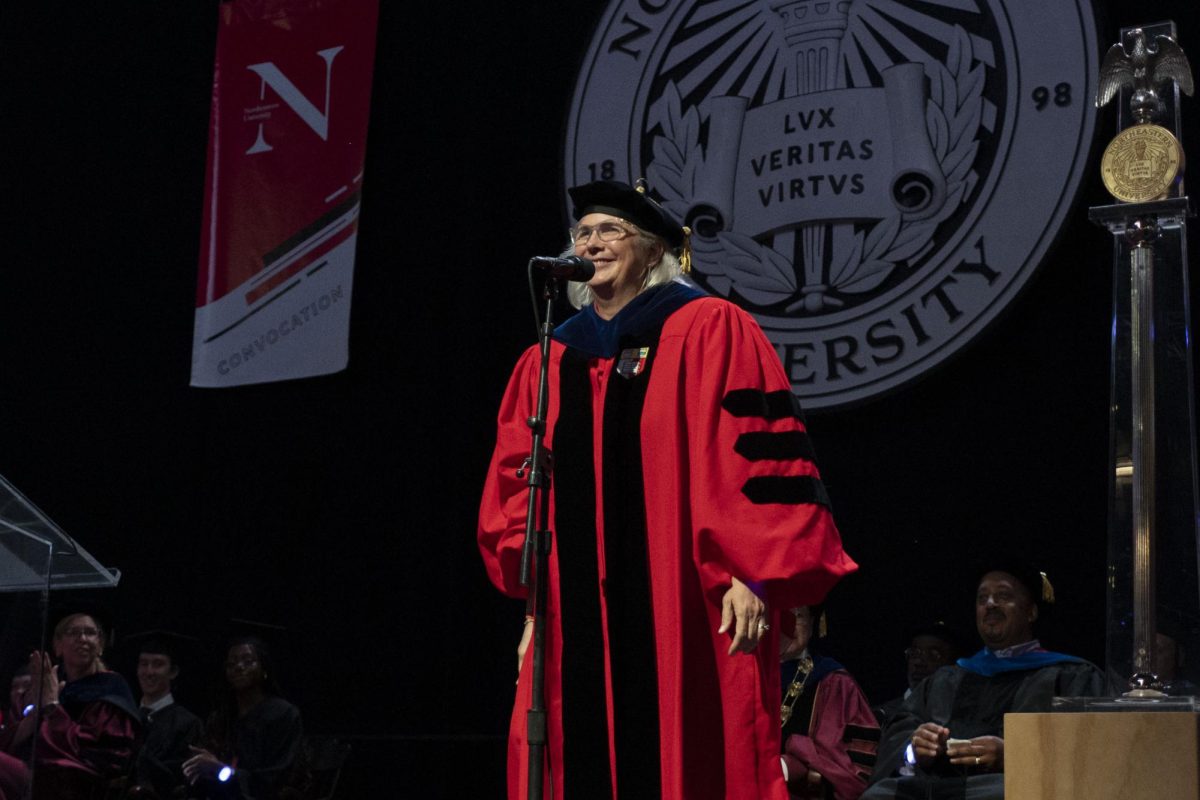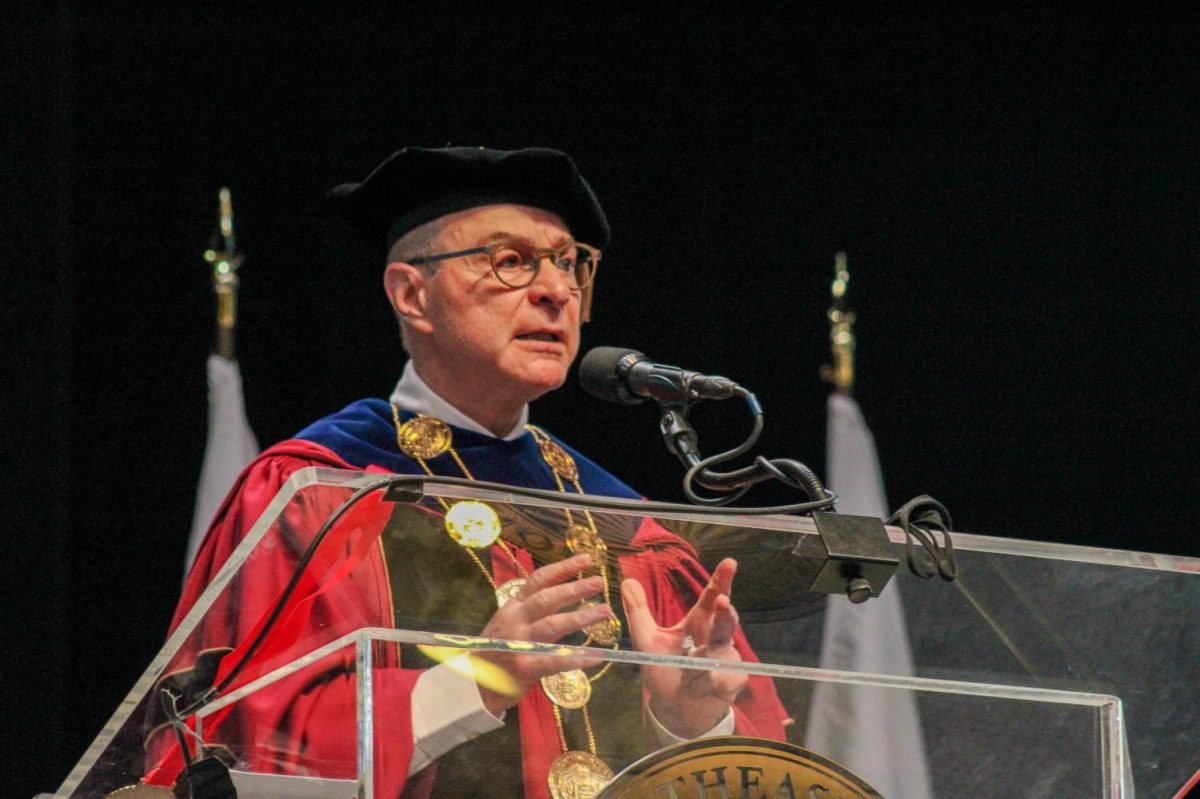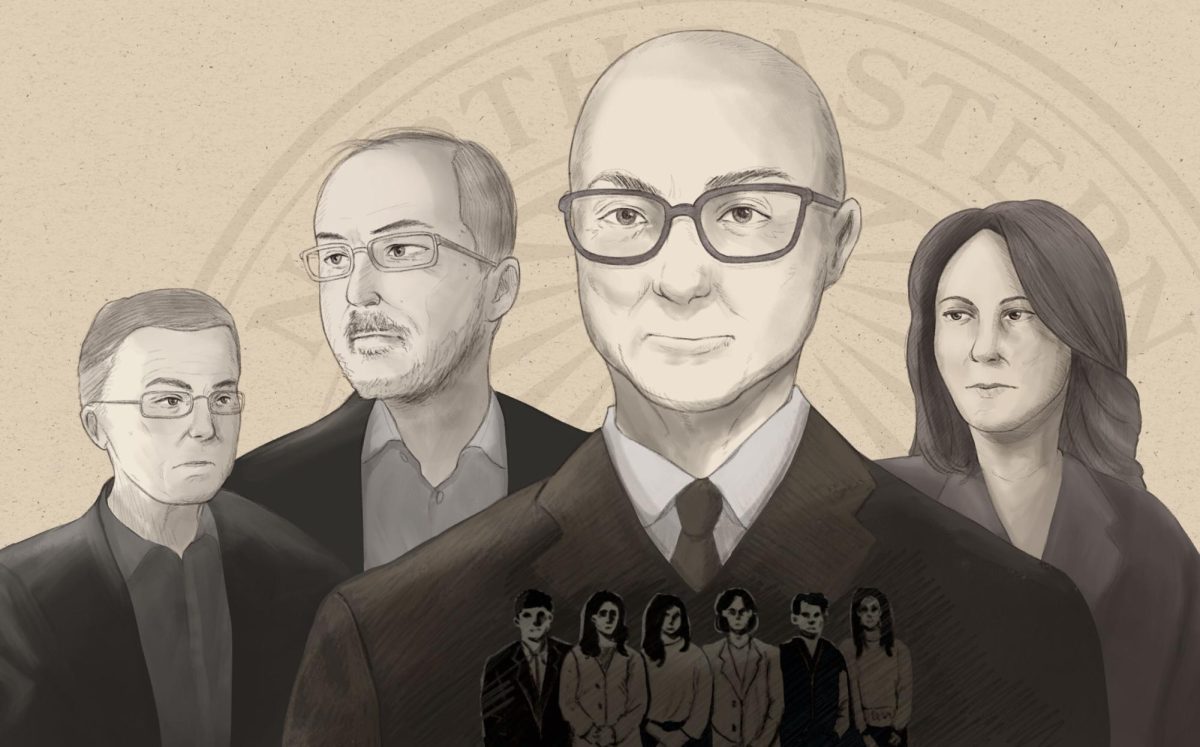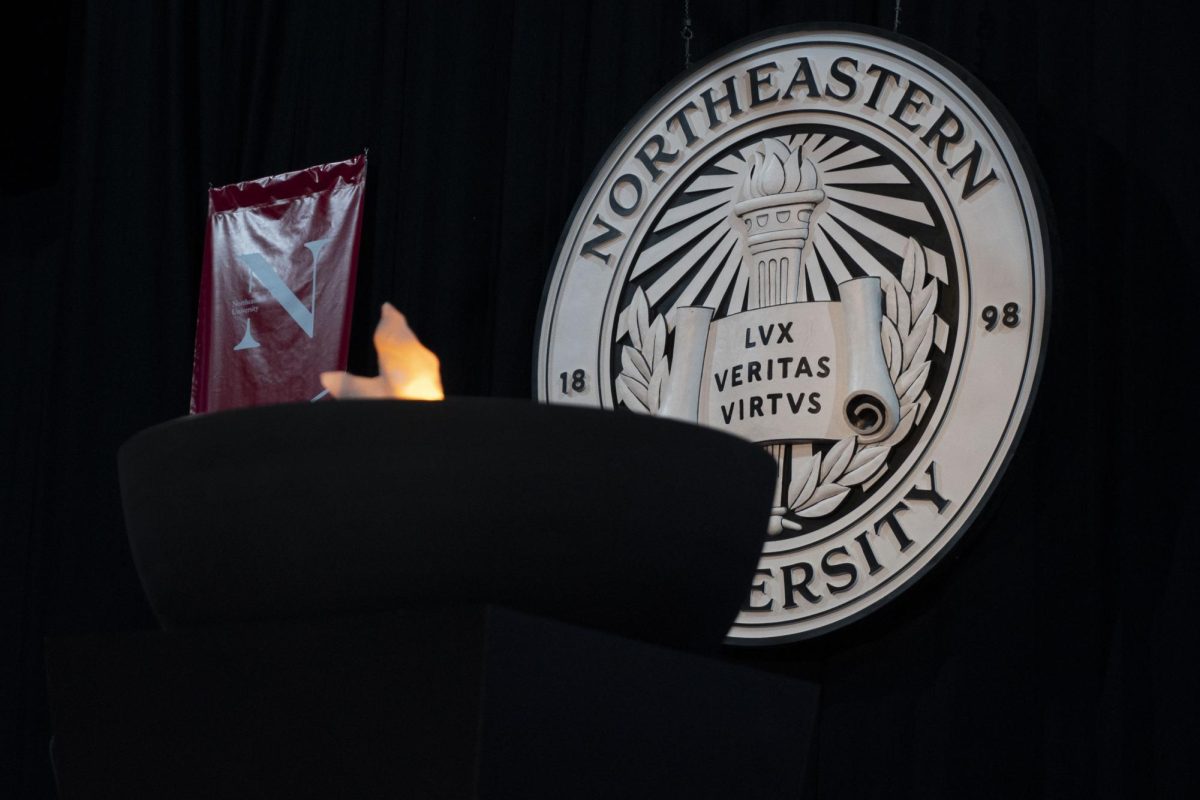Northeastern faculty who self-identify as women make nearly 20% less than their male-identifying colleagues, according to a recently-published survey of average base salaries by the faculty senate’s Committee on Shared Governance.
Northeastern faculty were informed of the “alarming” differences during a March 13 senate meeting.
Administering the faculty salary survey earlier this year, the Committee on Shared Governance collected 742 base annual salary figures ranging from $40,000 to over $200,000. While not official university data, the survey found significant wage discrepancy between gender presentations of faculty.
Looking at the average base annual salary across the university, the survey found the average salary for male faculty was $137,679 compared to $115,414 for female faculty, a difference of over 19%. Faculty who did not self-identify with male or female gender expression reported an average salary of $122,698.
Darcelle Lahr, professor of business practice at Northeastern Oakland, chairs the ad hoc committee that collected faculty salary figures anonymously.
“Our goal here is to … start to build evidence to demonstrate the validity of … longstanding concerns … regarding the existence of inequities in Northeastern’s faculty compensation,” Lahr said. “[We] took a look at the salary information that we had by professional gender expression … and we began to see some alarming results.”
The survey examined faculty salary at the assistant, associate and professor levels in each college in Boston and Northeastern Oakland, breaking down the results by gender expression — “male,” “female” and “another.” The committee chose to examine gender expression because discriminatory behavior is typically based on perceived gender in the workplace, Lahr said.
Examining the survey’s results by home college, faculty in the College of Professional Studies, Northeastern Oakland and the College of Arts, Media and Design were at the lower end of average annual base salary.
On the higher end was the D’Amore-McKim School of Business, the Khoury College of Computer Sciences and the School of Law. Average base salary was greater for male faculty in every single college except the College of Arts, Media and Design and the College of Professional Studies, where “another” was the highest, according to the survey.
Female faculty did not have the highest average salary in any college, survey results show.
When examining the data by faculty title, the committee looked at the three levels of faculty. Among eight positions between these levels, male faculty had a higher reported average salary in all but one.
The largest disparity was in the position of professor of practice, where male faculty reportedly earn twice as much as female faculty in the same position — a difference of $110,000.
“Given this data, the ad hoc committee felt that there was sufficient evidence of potential gender pay inequities to warrant further investigation,” Lahr said. “[We have] requested the appointment of an independent consultant to help us delve more formally into the faculty salary data with a specific eye toward determining whether systemic salary inequities do, in fact, exist.”
While the provost did agree that a review was in order, the specific request for an outside consultant was not approved at the time of the committee’s meeting.
“The salary equity process is in the faculty handbook, so it’s entirely appropriate for the Senate to take it up and review it and address concerns that people have with it and improve it,” said David Madigan, provost and senior vice president for academic affairs. “I’m certainly open to [an outside consultant], but let’s discuss it and decide how you … would like to do the work.”
What the provost did share is that Northeastern is conducting a self-evaluation of its pay practices specifically to investigate gender-based inequities. This process is to remain compliant with the Massachusetts Equal Pay Act of 2018, Lahr said, and protect the university against legal liabilities by showing progress toward eliminating gender-based disparities.
“As a top-tier research university, Northeastern places a premium on rigorous, scientific inquiry based on the best academic practices. This homegrown survey does not meet those criteria, and is therefore extremely misleading,” Vice President for Communications Renata Nyul said in a statement to The News. “Northeastern complies with numerous state and federal laws requiring gender parity for all of its employees, and does periodic and routine reviews across its workforce to identify and adjust any unintentional anomalies. The university remains committed to providing competitive compensation and benefits across its global network of campuses.”
The survey noted several limitations in its methodology, specifically using midpoint values for salary ranges to generalize the data. Similarly, the survey did not ask for specific salary figures, rather bracketed options which could distort the results in several ways.
In response to these concerns, Lahr told The News in a statement that the committee’s reports on faculty surveys “stand as shown,” and that updates will follow as they dive further into the issue.
In addition to the report on salary equity, the senate heard from Dan Cohen, dean of libraries, who said renovations in Snell Library are six months from completion. At this time, Cohen said, the university will reopen the main entrance along with a new coffee shop and event space inside.
The senate also passed a resolution to implement a more equitable and transparent advising process around combined majors, specifically with a focus on the co-op program and Global Scholars.





